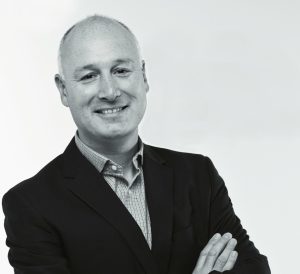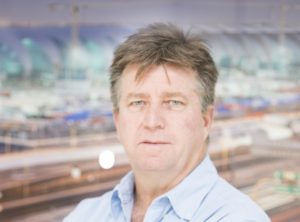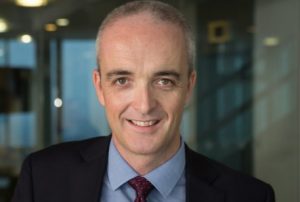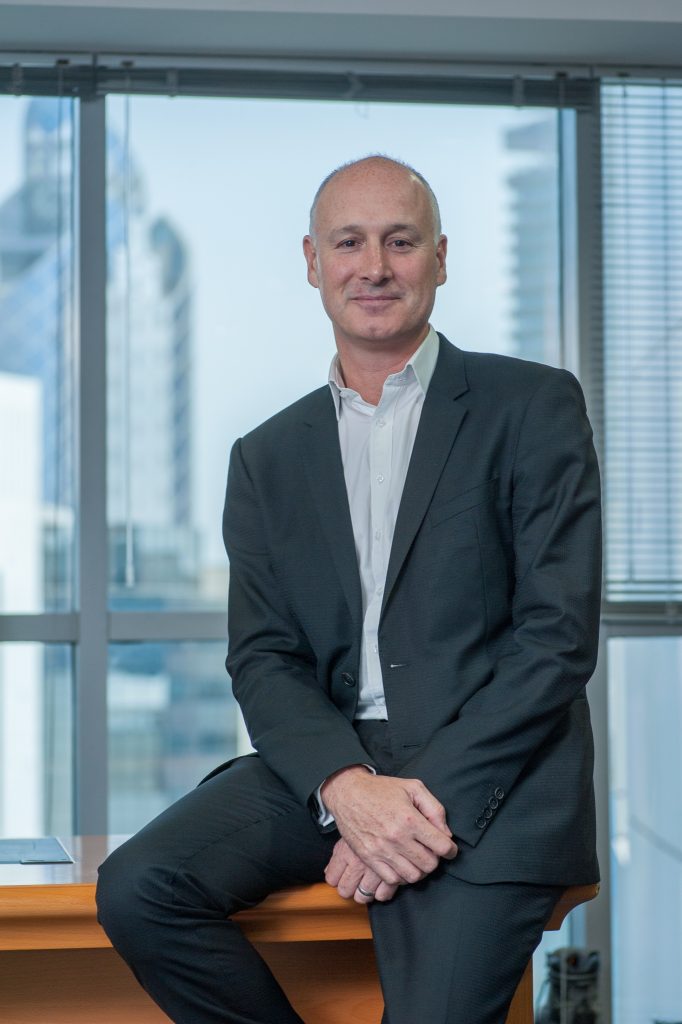The past 12 months have been a tricky time for companies operating in the Middle East construction sector. At the dawn of a new year, Jason OConnell spoke to some of the biggest players in the market to find out their expectations for the year ahead.

Bishoy Azmy, CEO of Al Shafar General Contracting (ASGC)
Our outlook for 2017 is a positive one, having been aware of several Dubai projects that were in the planning phases, and our expectations are that many of them will be announced during 2017. We also expect to see an increase in construction and real estate investment activity in Abu Dhabi, albeit in the second half of 2017.
2017 will not be without its challenges, both external & internal. Our external challenges come from the fact that today we have in our portfolio several large important projects which clients need delivered in a constrained timeframe. Hence our challenge would be to make sure that this happens, by overcoming our own deficiencies and limitations, the clients occasional inclinations for delays and changes, and by overcoming market conditions and any hurdles that official authorities or other 3rd parties may impose.
Internally, we are labeling 2017 as the age of digital transformation. We have recently hired a Chief Information Officer, and under his tutelage, we envisage a lot of change in how we conduct our business. This would include everything from recording attendance, performance assessment and asset management, to invoicing clients, and dealing with our subcontractors. We also envisage improvements in our procurement activities as well. This transformation is what we are considering to be the challenge.
We are expecting continued activity and growth in social infrastructure projects, over the next several months. These include airports, road works, tunnels and metro works, in addition to canals, hospitals, universities and educational complexes.
One current trend that we are already witnessing is a rise in what one can call creative financing, where contractors may end up taking on additional risk of delayed payments, or taking onboard ownership of the project, until the project is actually delivered. On a related note, we are also seeing export finance becoming very active.

We expect that the sustained lower oil price and continuing reviews of government spending priorities will result in ongoing uncertainty across regional markets. At Atkins our business success is firmly built on our ability to be agile and responsive. We expect 2017 to be similar to 2016. 2018 onwards should be back to a reasonable level of growth in the infrastructure and property sectors especially with the growing population.
Liquidity challenges across all markets mean that, like many, managing cash will be our major focus and challenge. In addition, there will continue to be both broader challenges and opportunities as the GCC governments balance managing their budgets whilst delivering on their ambitious long-term goals and national visions.
I expect to see increased opportunities arising from alternative financing models in infrastructure, with a focus on PPP, BOTs, BOOT, IWPP. There is a strong demand for infrastructure developments especially in Saudi Arabia, however until the establishment of the PMOs in the government entities, it will likely remain quiet.
The region offers good opportunities linked to the drive for economic diversification and the need to invest in social infrastructure; transport infrastructure; retail, hospitality and defence. Our strategy is aimed at carefully selecting critical, complex projects and programmes with established key clients who need a long-term partner.
A key area to look out for is technology / digital. I truly believe that rapid and disruptive advances in technology in our market represent the most exciting opportunity facing us today. Technology is revolutionising what we do and the way we do it. We are investing in technology innovation to offer clients more efficient and economic solutions using digital engineering and digital asset management.
Another really exciting trend which could offer some fantastic solutions for the region is intelligent mobility which harnesses emerging technologies to improve the movement of people, goods and services. Again, we are investing in this area across a number of related activities covering connected/autonomous/electric vehicles and platforms to link many modes of transport to provide mobility as a service.
Olivier Crasson, EVP, BESIX/Six Construct
We expect a general slowdown in activity in 2017 compared to 2016, mainly due to the level of the oil price which will have an effect on all industries. However, due to a number of strategic projects such as Dubai Expo 2020, we will focus our attention on the larger projects as the necessary infrastructure work will continue to develop in order to be ready on time. The Qatar World Cup 2022 is obviously also an important driver.
In general, all our projects are considered to be a challenge as such, due to their inherent complexity. However, if we have to identify a specific challenge, it would be to make sure that our payments are received on time, but we trust that a follow up and a dialogue with our partners will help us to overcome these challenges if they occur.
Infrastructure and environmental projects in the broad sense are where we believe opportunities will come. We also see prospects in transport, health, sport, leisure and tourism.
Alternative financing such as export finance and private-public partnerships (PPP) as new procurement mechanisms will become more popular in the region. Furthermore, there is a definite trend towards privatisation in a number of GCC countries, but the process is logically longer, as we will have to see how this materialises in 2017 and beyond.
Senan Al Naboodah, MD, Al Naboodah Construction
Al Naboodah Construction Group (ANCG) has significant private sector orders in the pipeline for the first quarter of 2017, the majority being real estate sector clients, the sector which is providing the best opportunities for us. We did not see a significant decline in the number of tenders issued in 2016 and do not predict a decline in 2017. The biggest challenge in 2017 for the industry will be managing project financing and payment delays.
ANCG has successfully avoided these through careful assessment of the projects we work on, and the financial security of who we partner with. We are extremely selective with RFP participation and diligently ensure the projects we pitch for are financed securely. Equity partnerships, joint ventures and public private partnerships are a trend we expect to be embraced in the coming years across the industry.
We have implemented innovative and flexible pricing structures with our clients to take account of continuing fluctuations in commodity prices. In 2017, we will continue to embrace industry best practice in technology with our in-house BIM modelling team and our use of robotics saving time and manpower and creating savings for our clients. Our heritage is firmly in the UAE, but we will continue with expansion plans in the GCC and East Africa in 2017. We are pleased with the state of our order book for 2017, putting us in a strong position to start the New Year.
Kez Taylor, CEO of ALEC Building

The construction sector at the moment is very positive and there are plenty of opportunities in the next 5+ years. We will be focusing on operational efficiency in 2017 and ensuring that we create an environment on projects where all our stakeholders and subcontractors are able to succeed. Having effective relationships, alignment and trust in the supply chain is our key priority.
There will be more emphasis on design and build projects as well as diversifying the core business. Renewable energy has become a priority and businesses need to respond and adapt to the changing requirements which have been set to make the UAE a smart city. ALECs continuing growth is to offer complementary services which add value to our core business as a contractor.
Richard Marshall, Senior Infrastructure Analyst, BMI Research
Overall we anticipate that 2016 was the bottom in terms of growth in GCC construction markets. The year saw that initial expectation that the wealthy GCC markets could sustain their infrastructure project pipelines during a sustained period of lower oil prices was untrue and planned projects began a period of rationalisation.
There has been pain in some markets notably Saudi Arabia, which we forecast went into recession over 2016 but 2016 also saw markets begin a fundamental transformation which should set them on the path of more sustainable growth as they look to increasingly tap the private sector. That said, 2017 will still be challenging as markets are not yet attractive enough generally to attract massive infrastructure investment and governments remain very selective in which projects they finance. There will be a heavy focus on cost efficiency and margins at construction firms will be under even more pressure than ever.
To find the best opportunities, firms should look to those projects which are key for economic diversification. For example, freight rail projects connecting to powers over long distance passenger rail. In particular though, we highlight industrial construction sector in 2017, as we expect GCC countries will seek to move further downstream into the petrochemical sector to capitalise on growing demand for plastics at a time when excess refining capacity combined with tepid demand for refined fuels weighs on margins in the refining industry. While each GCC country will view expansion in the petrochemicals space as a means to accelerate economic diversification, Saudi Arabia and the United Arab Emirates in particular announced ambitious growth targets.
Andrew Jeffery – Partner Capital Projects Leader MENA, Deloitte
Undoubtedly 2016 was a very challenging year with falling order books month on month for most companies across the GCC due to government spending reprioritisation, low oil prices, falling consumer demand, cash flow and liquidity management as well as political uncertainty in some areas of the region.
Accordingly securing timely payment has certainly been top of the list for most companies. Ensuring strong cash management will be the differentiator to leading companies moving forward, allowing them to better invest, strengthen their business and talent for when the market starts to recover in mid-2017.
We believe the winners will be those companies who more quickly adopt leaner operating models and use technology to maintain margin despite falling tender prices. Time and cost overruns look likely to continue as a result of all of the above as well as the need to slow things down in some geographies as budgets are reprioritised.
On the upside, Expo 2020 and WC2022 are increasingly looming and so will present more and more opportunity. The KSA NTP offers the biggest game changer, by size, for the region when its publicised project pipeline start coming to market in 2017.
Unfortunately we see the headwinds of 2016 continuing well into 2017. In this context it seems inevitable that some of the larger International companies will choose to exit some of the regional markets while others may merge to provide better scale and stronger balance sheets. The funding and payment of projects will continue to be a challenge with increasing levels of bonds likely. The focus on KSA for most companies looks to increase as the KSA NTP moves from strategy into delivery. PPP will continue to be an area of interest.
Campbell Gray, MD, Middle East – Faithful + Gould

However, I believe that to ensure the successful delivery of Vision 2030 and the Fifa World Cup 2022 in Qatar, the demand for project and programme services will rise in Q3 next year. In KSA, the National Transformation Strategy is driving diversification in the Kingdom and the Project Management Office (PMO) law passed this year, will encourage best practice and drive procurement.
We see the industry sector presenting opportunities in 2017 and so were currently diversifying into this sector with energy our prime focus. Currently in the Middle East the majority of our activities are within the property sector, with a large focus on what we call lifestyle; retail, leisure and hospitality and going forward I would like to see industry account for approximately 30 percent of Faithful+Goulds Middle East revenue.
We are maintaining and building relationships for the future and investing in the learning and development of our employees to enable us to deliver on our clients requirements when the market begins to build again in 2018/19. In 2017 we will focus on continued delivery to our clients and ensuring excellence in the management of their programmes and projects.
We will continue to invest in technology 2017 as we continue to move into the digital construction era. Technology and innovation play a key role in what we do and facilitating continuous improvement within our business, enabling our clients and people to benefit from finding better and more efficient ways of working.
Craig Plumb, Head of Research, MENA – JLL

After several years of focus on infrastructure and non-real estate projects, the focus could shift back to commercial and residential real estate construction in 2017. In addition to major projects associated with Expo 2020, Dubai is likely to see construction commence on a number of major new retail and mixed use projects in 2017. Data from MEED Projects suggests that real estate could account for over 60 percent of all new construction contracts let in 2017 in the UAE.
The biggest challenges facing the construction industry in 2017 are likely to revolve around financing of projects. Problems with raising finance are likely to ensure that many of the announced projects do not proceed on schedule and those that do are likely to be those where the developer can provide a combination of both financing and contracting expertise. It is notable that Chinese contractors are becoming more active across the region (especially in Egypt and the UAE), in addition to bringing in their own construction labour, many of these developers also benefit from government backed financing. This model has also been successfully used by Korean contractors to win major infrastructure projects in the region.
Related to the issue of funding, we expect to see significant levels of delay in the completion or delivery of many announced projects in 2017. This is certainly not a new problem, with only 35 percent of all announced residential projects in Dubai actually being delivered in the scheduled year of delivery in Dubai over the past 5 years. We see little reason to expect a major improvement in this materialisation rate in 2017.
Ahmed Alkhoshaibi, Group CEO, KBW Investments
The outlook for 2017 for the KBW Investments portfolio companies looks promising. Specific categories in our construction-oriented ventures are already heavily engaged for the next two to three years depending on which segment were looking at – with large-scale projects that have already broken ground.
Currently, with the existing confirmed projects, contracting, engineering and architecture are projected to be KBWs biggest profit-drivers. Early Q1, KBW Investments will be announcing two new endeavors that will significantly impact our corporate landscape internally, and externally will substantially increase our level of market penetration and diversify the business.
Over the course of 2016, KBW was extremely active across almost every segment. In 2017, we will be building on that momentum by focusing on the new entities in the Group including Grayscale Interiors in fit-outs, KBEC in MEP, Ascorel Middle East in heavy machinery safety technology, and our various on-going projects such as the PPP with Dubai Courts and the Novotel Sharjah Expo. This, together with our upcoming announcements, will propel the Group into what we consider very advantageous positioning.
Bill Bodie (MEA Group Executive Vice President, Business Development) – Parsons
Despite the market headwinds, we see good opportunities for growth in 2017. Innovation and diversification are key. The GCC countries effort to diversify their economies away from a disproportionate dependence on oil and gas revenues and their focus on infrastructure development for tourism, trade, and finance presents opportunities for Parsons to provide solutions in multiple sectors that are not reliant on oil prices. We are equipped with the right people, processes, and technologies to support the government diversification efforts, and we have vast experience with a variety of services in many diversified markets such as transportation, leisure, housing, and security.
Several projects have already been put on hold. However, because of our extensive track record on major projects in the region, we have honed our value engineering offerings, so we can drill down on the services previously provided and identify savings for our customers as they move forward on projects. Other projects are proceeding more slowly as governments cut or stretch out capital spending;
Infrastructure spending is being scrutinised heavily by government agencies, and low-price only contract awards are now becoming more frequent. While we always look for ways to field competitive cost structures, the environment today is that the lowest price is more important relative to everything else. We can compete on price, however, we are not going to race to the bottom just to win work if we dont think we can deliver the quality that is part of the reputation and brand value that Parsons enjoys in the region, and the reason why we have built market share.
Robert Hope, CEO of SSH
I believe that market sentiment is improving however it will still be a tough year for trading in 2017 on tight margins in the MENA region. Certain markets and sectors are being hit harder than others and the key for SSH is to navigate a steady course around the region focusing on our key client relationships and delivering to the very demanding schedules.
We are often teamed with international partners and in some cases getting them to appreciate the time and budget pressures that our clients face in this regional market can be a challenge. Also, as with most businesses in the current market conditions, cash flow is critical and must always be a focus for us to earn and collect the cash in a timely manner especially given the tight margins available.
I think that we will see a trend towards utilising consultants committed to and based in the region, who can draw upon world class expertise locally to meet the budget and time constraints that our regional clients face. SSH is shaped and focused to respond to this market trend and as one client said ‘you have hit our sweet spot on what we need to deliver our projects’.
I also see progress on increased private sector engagement in major project delivery and a genuine desire to move the private partnership agenda along especially in the UAE. However, more needs to be done at governmental level if this is to truly flourish and properly fill the budget gap that the new oil price levels have created.
I would also like to see the trend of rail investment in the region continuing as a catalyst for further general market growth and particularly in the Kuwait market. However, I currently believe that this is something that the individual governments are reviewing as these are significant long term investments and major budget commitments.
Ahmed Alhatti, CEO, Cayan Group
Determination is key to success and to reversing any negative impacts around. The fluctuating economic conditions will continue. However, additionally, in Saudi Arabia, we expect there to be some challenges arising in recruitment and in order to oppose these, we have put in place policies to offer internships, and partnerships for training with educational and vocational institutes.
Preparation is key, so eventually we recognised that a contingency plan should be in place to face any persistent economic conditions in 2017 locally & internationally. In fact, this will back us up and at the same time will add value to our business. In 2016, Cayan Group broke-into the hospitality sector through Cayan Hospitality, and the development of projects such as Cayan Cantara. Hence, the new area of focus and strategic expansion for us at Cayan will embrace hospitality given that this sector is emerging effectively and widely.
We cant underestimate the significance of investing in this area since it is a fast-growing sector in the region with many opportunities because of well recognised global events such as Dubai Expo 2020 and the booming events, exhibitions and conferences sector. Besides that, Cayan Group will continue to spin its development wheel and seek expansion and penetration opportunities in 2017.
Samer Halabi, Regional MD, KONE Middle East
The start of 2017 will be in line with 2016. However, there seems to be encouraging signs appearing towards the second half of the year in a couple of countries which will have some positive impact on the whole year of 2017. The biggest challenge this year is obviously the cash flow required to keep the business engine running. It is important to carefully manage the running costs in order to pass the challenging period.
In each country there are different sectors that could provide good opportunities. Obviously those are related to the well-known events such as the Expo 2020 in Dubai, the World Cup 2022 in Qatar and other events and demands happening in different countries in the region.
Creativity is a key differentiator in the coming year. Sustainability and quality is a key success factor for the future.
Ashraf Samy Botros, MD of Al Shafar United Electro Mechanical Engineering (ASU)
Expo 2020 is the most important catalyst for growth over the next three years. Considering the large scale investment in infrastructure, we can say that construction will be providing the best opportunities in 2017. Big MEP projects awarded to ASU recently are Dubai Arena (Meraas), Mohammed Bin Rashid Library (Dubai Municipality), Refurbishment of Dubai International Terminal 1, Halls C&D (Dubai Aviation Engineering Project Corporation), Boulevard Point (Emaar) and Mediclinic Parkview Hospital (Mediclinic Middle East).
Green building and Building Information Modelling (BIM) will be the key trends for the coming years. The benefits of Green Building are manifold, and may be categorised along three fronts: environmental, economic, and social. BIM will deliver benefits throughout the building project lifecycle. In our field it will make better design decisions, build more efficiently, and manage and maintain building portfolios more effectively. Our biggest challenge for 2017 is to be one of the best MEP companies in the UAE.




